Intro:
If you’re accessing this podcast, you’ve already listened to Rounders: A History of Baseball in America, our main show, and you’ve signed up as an exclusive email subscriber. Thanks so much for continuing to support both of these projects.
Note: we have new episodes of the main show coming out soon! I’ve been researching and recording some interesting topics I think you’re really going to enjoy. Stay tuned!
This Week’s Memorable Moments:

January 8, 1995: Mike Schmidt Enters the HoF
Mike Schmidt is a former professional baseball third baseman who played his entire 18-season career for the Philadelphia Phillies.
Schmidt was a:
12-time All-Star
Three-time NL MVP
10-time Gold Glove Award winner
Six-time Silver Slugger award winner
He also led the National League in home runs eight times and in RBIs four times.
He retired from baseball in 1989 and has since worked as a television commentator and analyst for the Phillies.
January 9, 1984: A Player is Jailed for Cocaine Possession
Pascual Perez, a pitcher for the Atlanta Braves, was arrested for cocaine possession in his native Dominican Republic. He was forced to miss the beginning of the season as he remained in jail until his trial.
Perez claimed that he was given the packet by a woman he did not know and was unaware of what it contained.
Perez was a Dominican professional baseball player who pitched in the Major Leagues for the Pittsburgh Pirates, Atlanta Braves, Montreal Expos, and New York Yankees. He enjoyed his winningest seasons while with the Braves, going 15–8 and 14–8 in 1983 and 1984 respectively.
Perez was known for his on-field and off-field controversies.
Opposing players hated it when he would use an imaginary finger gun to shoot them, or when he would pound the baseball into the ground.
While it is customary for pitchers to walk back to the bench after completing an inning, he would run full speed to the dugout (gold chains and long, curly locks bouncing) after an inning-ending strikeout.
He threw what was known as the “Pascual pitch” which resembled a softball toss
He was also involved in multiple beanball incidents, most notably in 1984 when he hit the Padres’ batter Alan Wiggins with his first pitch leading off the game. In response, each San Diego pitcher in the game threw at him when he came to bat.

January 10, 1938: Willie McCovey is Born
Willie Lee McCovey was an MLB first baseman from 1959 to 1980. He was born on January 10, 1938 in Mobile, Alabama..
McCovey played for the San Francisco Giants for 19 seasons and also played for the San Diego Padres and Oakland Athletics in the latter part of his career.
During his career, McCovey compiled 521 home runs, 1,555 runs batted in (RBIs), and had a batting average of .270. He was was a six-time All-Star, three-time home run champion, and was named National League Most Valuable Player in 1969.
He was inducted into the Baseball Hall of Fame in 1986 in his first year of eligibility, only the 16th man so honored then.
McCovey was called “the scariest hitter in baseball” by pitcher Bob Gibson, seconded by similarly feared slugger Reggie Jackson.
McCovey passed away on October 31, 2018, at 80.
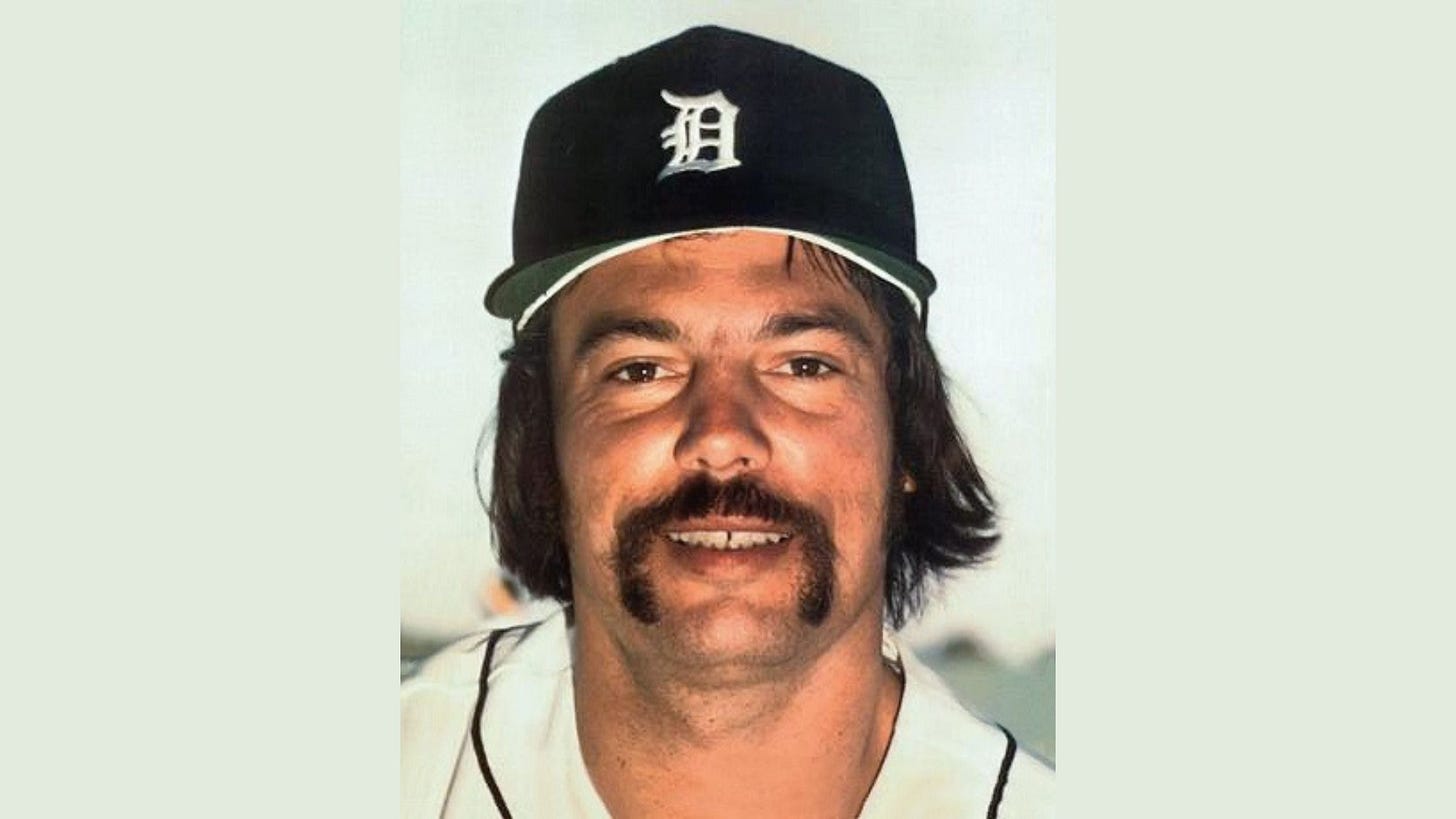
January 11, 1971: A Young Tigers Pitcher Suffers a Heart Attack (and Makes a Comeback)
On January 11, 1971, John Hiller, a pitcher for the Detroit Tigers, suffered a heart attack at his home in Duluth, Minnesota. He was only 27 years old at the time.
Hiller underwent an experimental procedure called intestinal bypass surgery to control his body’s absorption of cholesterol. He missed the entire 1971 season due to his heart attack.
However, Hiller made a remarkable comeback and returned to play in 1972. He helped the Tigers win the American League East title and won Game 4 of the 1972 AL Championship Series.
Hiller continued to rank among the American League’s elite relief pitchers through the 1978 season, eventually retiring in 1980 with a career win–loss record of 87–76, a 2.83 career ERA, and 1,036 strikeouts.
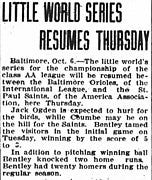
January 12, 1920: The Draft System for Minor Leagues Gets Overhauled
The annual drafting system for minor league players was overhauled on this date. The new system was developed by Charles Ebbets, the co-owner of the Brooklyn Dodgers, who had been advocating for the change for many years.
Under the new system, the annual drafting of players from the minor leagues would be done in inverse order of the final standings. This meant the team with the worst record in the previous season would get the first pick in the draft, while the team with the best record would get the last pick.
The new system was designed to promote more competitiveness among the teams in the minor leagues. Ebbets was also a rare, yet strong advocate for the rights of minor league players and worked tirelessly to improve their working conditions.

January 13, 1972: A Female Umpire Wins a Discrimination Suit Against the NAPBL
Bernice Gera, a former umpire and housewife, won a landmark sex discrimination lawsuit against the National Association of Professional Baseball Leagues (NAPBL).
Gera had filed the lawsuit on March 15, 1971, after being denied employment as an umpire by the NAPBL due to her gender 12. She accused the New York Professional Baseball League and its president, Vincent McNamara, of not employing her as an umpire due to her sex.
The NAPBL rejected Gera’s application, citing reasons such as single-gender dressing rooms and foul language on the field as reasons why females should not umpire games.
Gera fought the NAPBL in court for five years before finally winning the case in a five-to-two decision. This victory paved the way for Gera to become the first woman to umpire a professional baseball game in 1972. However, she encountered a series of disputes in the game and never umpired again.
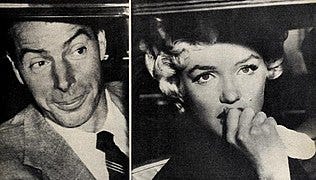
January 14, 1954: Joe & Marilyn Get Hitched
On January 14, 1954, Joe DiMaggio, a former Yankees great, married actress Marilyn Monroe. The couple had been dating for two years before tying the knot.
The wedding occurred in a small ceremony at San Francisco City Hall 13. The press and fans mobbed the couple at the wedding. However, the marriage was brief and volatile, lasting only 274 days before the couple divorced.
Monroe accused DiMaggio of “mental cruelty” in her filing. Despite their divorce, DiMaggio remained devoted to Monroe and sent roses to her grave several times a week until his own death in 1999.
The marriage of Joe DiMaggio and Marilyn Monroe was a significant event that linked baseball and Hollywood. It was a high-profile romance that captured the public's and the press's imagination. Although the marriage did not last, it remains an important part of the history of both baseball and Hollywood.








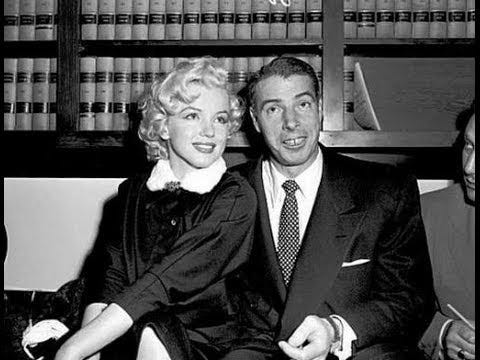
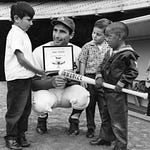

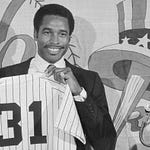
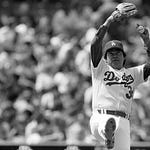

Share this post